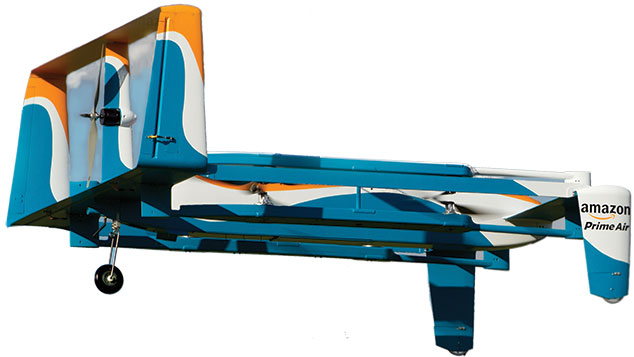
Amazon looked set to cause trouble for traditional retail giant Walmart. But there’s life in the old dog yet, says Alice Gråhns.
“Ever since the scale of Amazon’s threat to traditional retail began to reveal itself more than a decade ago, doomsday warnings for big-box stores have been steady and loud,” says Sarah Halzack in Bloomberg Gadfly. However, over the past few years it’s become increasingly evident that the huge-shop format “is not necessarily a death sentence”. Need proof? Just look at Walmart.
The retailer “is flexing its muscles in its fight with e-commerce giant Amazon”, says Jennifer Saba in Breakingviews. The shares hit a new record high after the $268bn retailer increased its third-quarter like-for-like sales by more than 4%, the fastest pace since 2009.
Even allowing for a boost from people threatened by hurricanes stocking up, this was impressive stuff. What’s more, Walmart’s e-commerce sales soared 50% in the quarter, well ahead of the estimated 40%. Its grocery business saw its strongest quarterly sales on a like-for-like basis in nearly six years due to Walmart rolling out CEO Doug McMillon’s strategy of getting customers to buy online but pick up goods in stores.
It is clear, says Justin Lahart in The Wall Street Journal, that Walmart can still “learn a lot from Amazon but it has the online retailer beat in one important category: profits”. Earnings per share rose in the third quarter even though “hefty investments” in e-commerce and price-cutting put pressure on margins. The key has been a shift in overall strategy away from the hangar-like stores and physical expansion efforts. In 2015, it closed 150 shops and it has since concentrated on improving its existing ones. It has also invested in e-commerce, buying Jet.com last year for $3.3bn and snapping up smaller players.
Meanwhile, Amazon continues to pour money into its distribution centres, which are more expensive and less efficient than Walmart’s store and warehouses. In a world where customers increasingly don’t seem to mind whether they buy something online or instore as long as they feel they are getting value for money, Walmart’s network – it claims it has a location within ten miles of 90% of the US population – in conjunction with its improved e-commerce division bodes well.
Walmart’s upswing could put pressure on Amazon’s much more expensive shares if the latter’s investors, which have always allowed Amazon to run its retail operations at a loss as long as it keeps expanding, begin to envy Walmart’s profits and online sales growth. They are on a price-to-sales ratio of 3.5, compared with Walmart’s 0.6.
Still, “this is a decade-long fight”, as former JC Penney chief executive Ron Johnson told CNBC, and it’s not over yet. “Every quarter is a new round” – but for now, “Walmart’s coming back”.
City talk
• ”They probably weren’t in a mood for jokes in GKN’s boardroom, but let’s hope somebody used the obvious line: we need to talk about Kevin,” says Nils Pratley in The Guardian. In September, Kevin Cummings was announced as GKN’s next CEO. Then came last month’s £15m charge to cover a write-off of stock and receivables in an aerospace plant in Alabama. Now it has confessed that another £80m-£130m is needed. Meanwhile, GKN hasn’t explained why Cummings is leaving “with immediate effect”.
• Since Carolyn McCall became CEO of easyJet seven years ago, the firm has outlasted rivals including Monarch, Alitalia and Air Berlin. McCall is now leaving for ITV, but “the staying power bodes well… [as] easyJet finally stands to benefit from less capacity in the short-haul market”, notes Matthew Vincent in the Financial Times.
In Tuesday’s full-year results, it projected that capacity growth would halve in the first half of next year because of Monarch’s collapse, Alitalia’s administration and Ryanair’s staffing problems. Some 98% of Monarch’s grounded flights are from Luton and Gatwick airports, where it was in direct competition with easyJet — “which should now ease pressure on fares”. Cue easyJet’s first rise in revenue per seat for two years.
• Poor old Andrew Davies, says Alistair Osborne in The Times. The incoming Carillion chief executive has just seen the shares plunge 48%, following a third profits warning since July. If this mess continues, “there’ll be no share price left by the time Davies… turns up”. Despite the efforts of stand-in boss Keith Cochrane, “nothing has really changed”. Instead the figures are getting worse. After the “latest howitzer”, Carillion is valued at £93m. Yet its debts are ten times that. The risk is that Davies is “joining a demolition site”.